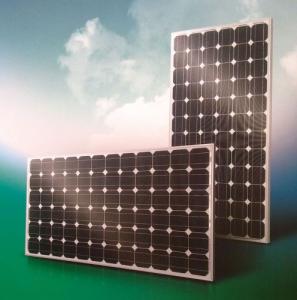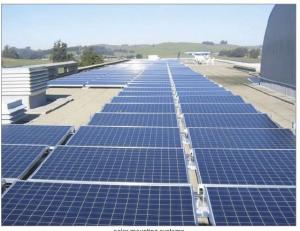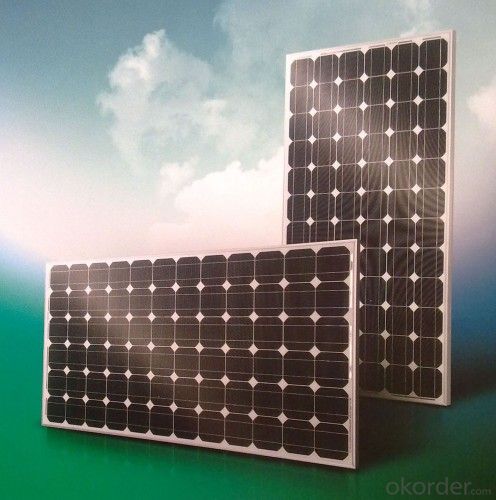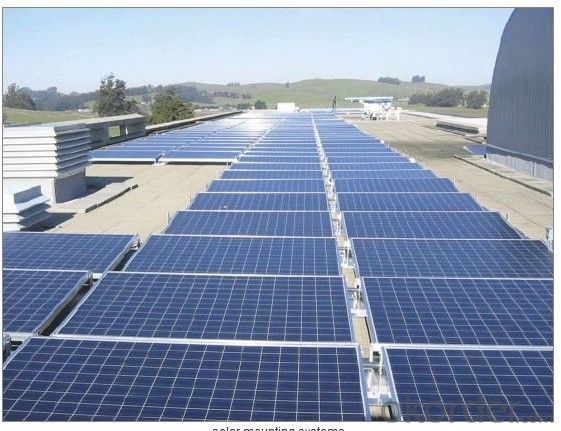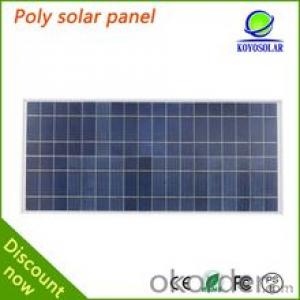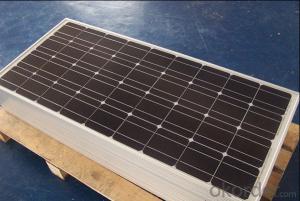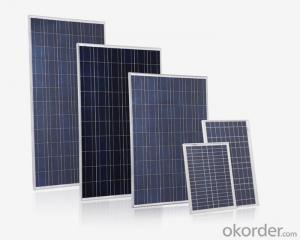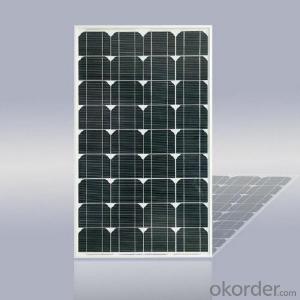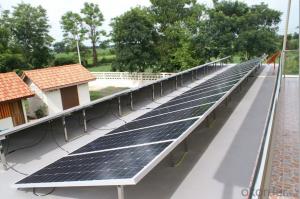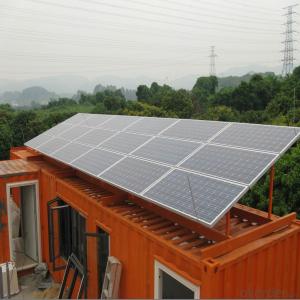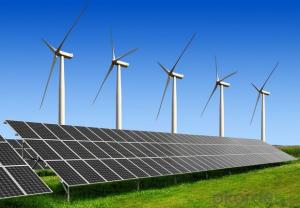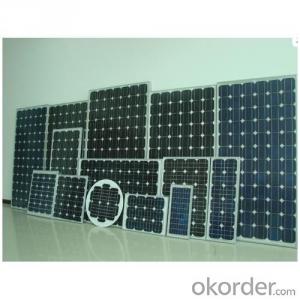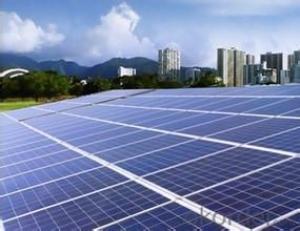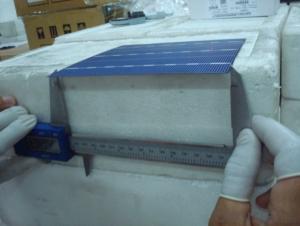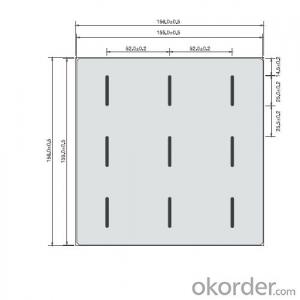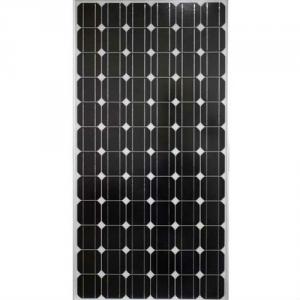Solar Cells for Space Applications:A Grade High Efficiency Solar Panel from China
- Loading Port:
- China main port
- Payment Terms:
- TT or LC
- Min Order Qty:
- 1 m.t.
- Supply Capability:
- 100000000000 m.t./month
OKorder Service Pledge
OKorder Financial Service
You Might Also Like
Quick Details
CNBM Solar is a world-leading and Vertical integrated manufacturer of high-performance with Silicon,
Wafer, Cells, Modules, which convert sunlight into electricity for residential, commercial, and utility-scale
power generation.
The capacity of CNBMSolar is reach to 1GW, and make sure each year our shipment capacity is more
Than 700-800MWs, at the same time, we have set up the largest solar power station with our partner
in Ukraine.
CNBM is a Quality + Service oriented company with“Excellence at Each Step” approach, composed of
the finest components from TUV and IEC-certified partners around the world, CNBM modules consistently
undergo a variety of trials at the company’s Test & Development Centre, ensuring peak performance
capabilities. The company is committed to develop and provide the world with clean and renewable energy
to ease the energy shortages as well as human kind’s impact on the environment.
Specifications
A-grade cell high efficiency 5W-300W PV solar panel
1.Higher conversion efficiency
2.quick delivery
3.Excellent in quality
Technical Parameter:
Good Quality 185W Solar Panel | |
Peak Power-Pmax(W) | 185W |
Open Circuit Voltage-Voc(V) | 44.2 |
Maximum Power Voltage-Vmp(V) | 36 |
Short Circuit Current-Isc(A) | 5.4 |
Maximum Power Current-Imp(A) | 5 |
Maximum System Voltage | 1000V DC |
Maximum Series Fuse Rating | 10A |
Power Tolerance | -1~+3% |
Temperature Coefficients of Pmax | -0.45%/℃ |
Temperature Coefficients of Voc | -0.348%/℃ |
Temperature Coefficients of Isc | 0.031%/℃ |
Nominal Operating Cell Temperature | 44.5±2℃ |
Standard Testing Condition(STC) | Irradiance:1000W/m²;Temperature:25℃;AM=1.5 |
Qualification Test Parameters | |
Operating Temperature | -40℃~+85℃ |
Storage Temperature | -40℃~+85℃ |
Pressure Bearing | ≥5400Pascal/m² |
Wind Bearing | ≥5400Pascal/m² |
Mechanical Characteristics | |
Cell Size | Mono 125*125mm±0.5 |
No.of Cells | 72pcs(6*12) |
Dimension | 1580*808*40mm |
Weight | 15.5Kg |
Glass | 3.2mm High Transmission,Low Iron |
Frame | Anodized Aluminum Alloy |
Junction Box | IP65Rated |
Internal Diodes | 3 Bypass Diodes |
Cable | 1*4.0mm² Length 900mm |
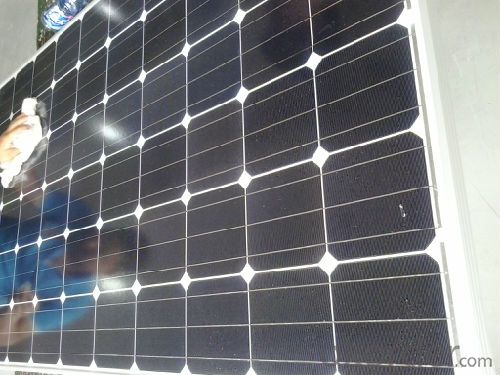
More Details-Photovoltaic, PV
Photovoltaic cells or panels are thin layers of semi-conducting material. Electrical charges are generated. When exposed to sunlight, they produce electricity which is fed into the domestic supply as direct current. A number of cells connected together behind glass form a solar panel.Solar panel refers either to a solar hot water panel, a common type of a solar thermal collector, or to one or more solar photovoltaics (PV) modules, electrically connected and mounted on a supporting structure.A PV module is a packaged, connected assembly of typically 6×10 solar cells. Solar PV panels constitute the solar array of a photovoltaic system that generates and supplies solar electricity in commercial and residential applications. Each module is rated by its DC output power under standard test conditions, and typically ranges from 100 to 320 watts. The efficiency of a module determines the area of a module given the same rated output – an 8% efficient 230 watt module will have twice the area of a 16% efficient 230 watt module. There are a few solar panels available that are exceeding 19% efficiency. A single solar module can produce only a limited amount of power; most installations contain multiple modules. A photovoltaic system typically includes a panel or an array of solar modules, an inverter, and sometimes a battery and/or solar tracker and interconnection wiring.
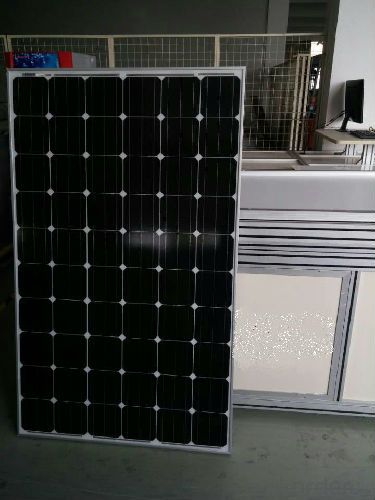
FAQ:What's your product warranty ?>
12 yrs free from defects in materials and workmanship;No less than 90% within 10yrs and no less than 80% within 25yrs
- Q: Can solar cells be used in smart grid systems?
- Yes, solar cells can definitely be used in smart grid systems. Solar cells can generate electricity from sunlight, which can then be integrated into the smart grid to efficiently distribute and manage renewable energy. This allows for the seamless integration of solar power into the grid, reducing reliance on conventional energy sources and promoting a more sustainable and reliable energy system.
- Q: What is the role of anti-islanding devices in solar cell systems?
- The role of anti-islanding devices in solar cell systems is to ensure the safety of utility workers and prevent damage to the grid in the event of a power outage. These devices are designed to detect when the grid loses power and immediately disconnect the solar system from the grid. This prevents the solar system from continuing to generate electricity and feeding it back into the grid, which could pose a danger to workers trying to fix the power outage. Anti-islanding devices also help to protect the solar system itself from potential damage caused by voltage fluctuations during an outage.
- Q: How are solar cells connected in a solar panel?
- Solar cells are connected in a solar panel through a series of electrical connections, typically using metal conductors, to form an array. These connections allow for the flow of electric current generated by individual solar cells, which are usually made of silicon-based semiconductors, to be combined and harnessed as usable electricity.
- Q: What is the maximum efficiency possible for a solar cell?
- The maximum efficiency possible for a solar cell, based on current technology, is around 44%.
- Q: Can solar cells be used for wireless communication devices?
- Yes, solar cells can be used for wireless communication devices. Solar cells can generate electricity from sunlight, which can then be used to power various electronic devices, including wireless communication devices such as smartphones, tablets, and wireless routers. This allows for the possibility of harnessing solar energy to power these devices, making them more sustainable and independent from traditional power sources.
- Q: What is the efficiency of a typical solar cell?
- The efficiency of a typical solar cell varies, but it generally ranges between 15% to 20%.
- Q: Is solar cell technology very developed and v applied to life a lot?
- Solar cells are used very much because not only do they save energy but also save money.
- Q: Do solar cells work at night or in low light conditions?
- No, solar cells do not work at night or in low light conditions because they require sunlight to generate electricity.
- Q: Can solar cells be used for powering remote research stations?
- Yes, solar cells can be used for powering remote research stations. Solar cells, also known as photovoltaic cells, convert sunlight into electricity, making them an ideal and sustainable power source for remote locations. Solar panels can be installed at the research station to capture sunlight and generate electricity, which can then be stored in batteries for use during periods of low sunlight or at night. This enables the research station to operate independently of traditional power grids, reducing reliance on fossil fuels and providing a clean and renewable energy solution.
- Q: Can solar cells generate enough electricity to power an entire house?
- Yes, solar cells can generate enough electricity to power an entire house. The amount of electricity generated depends on factors such as the size of the solar panel system, location, and amount of sunlight received. With a properly sized and efficiently designed solar system, it is possible to generate enough electricity to meet the energy needs of a household.
Send your message to us
Solar Cells for Space Applications:A Grade High Efficiency Solar Panel from China
- Loading Port:
- China main port
- Payment Terms:
- TT or LC
- Min Order Qty:
- 1 m.t.
- Supply Capability:
- 100000000000 m.t./month
OKorder Service Pledge
OKorder Financial Service
Similar products
Hot products
Hot Searches
Related keywords
